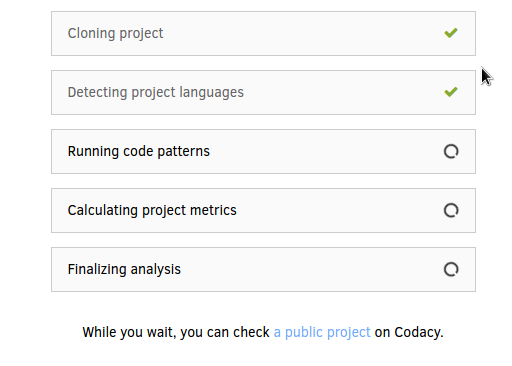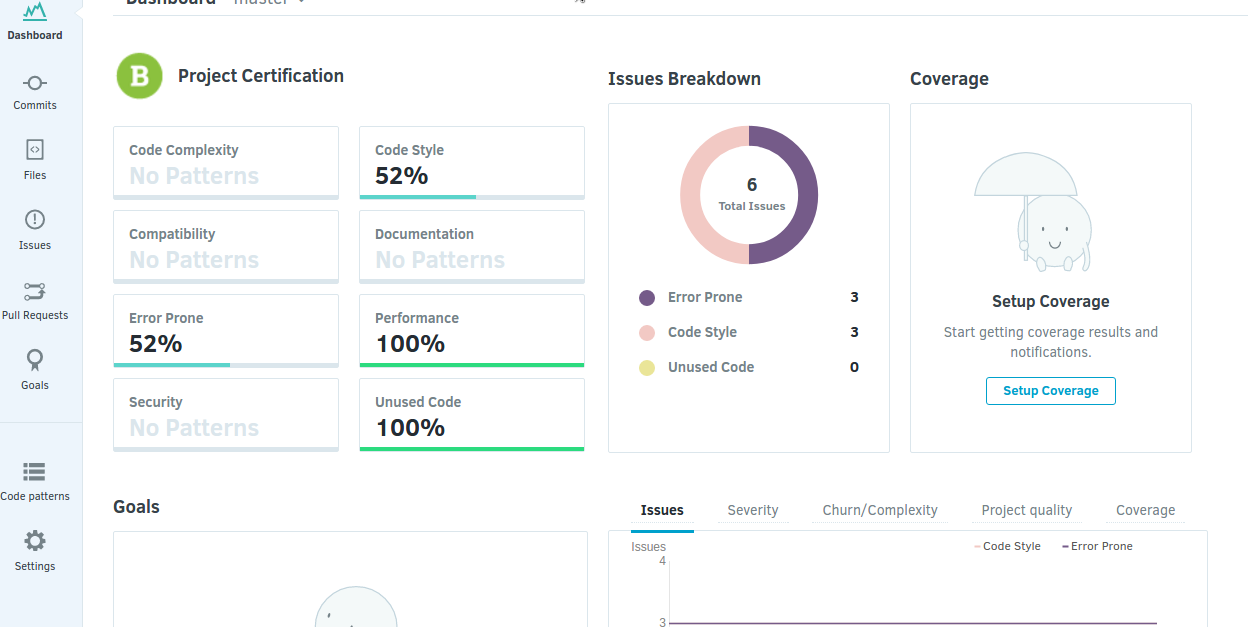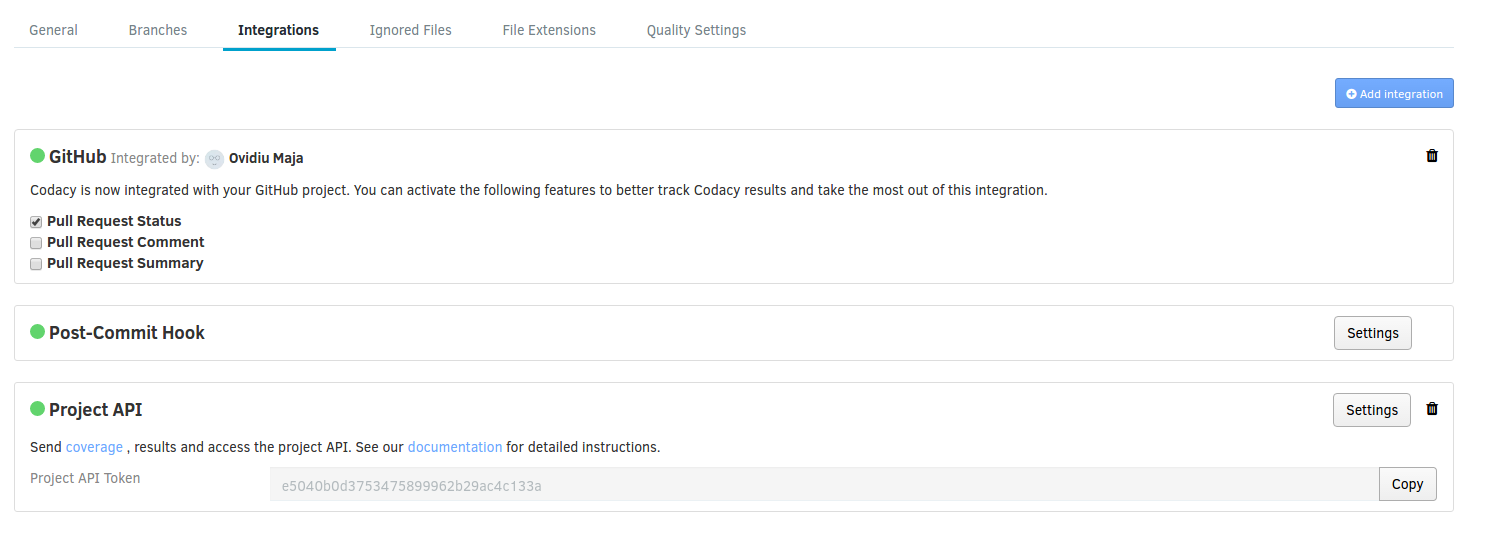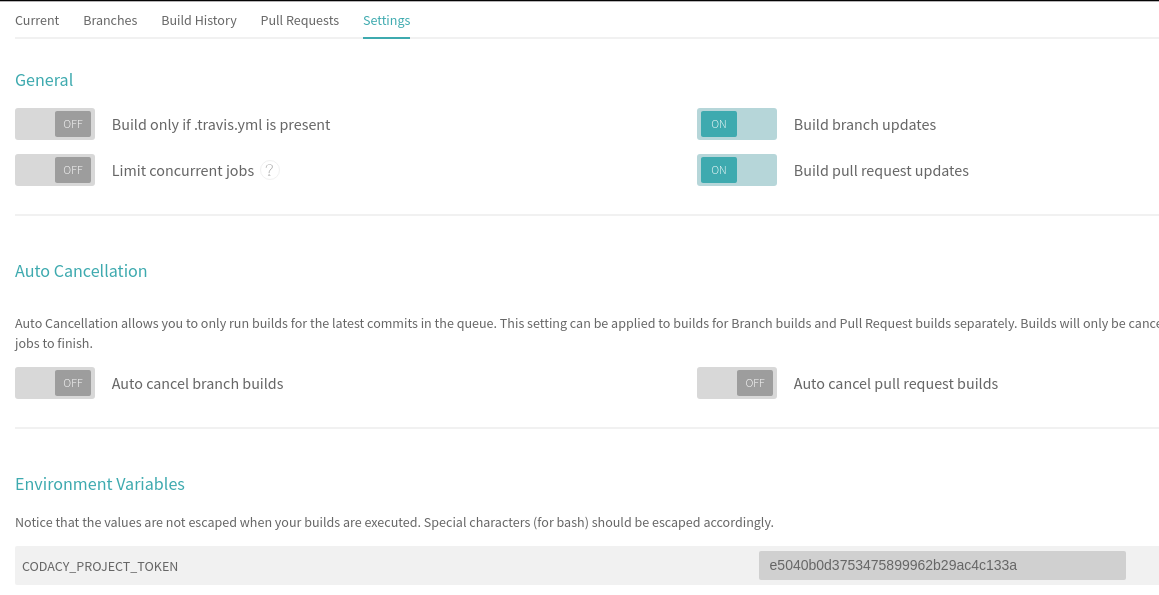This repository is intented as an example of how a multi-module Maven project can be setup and integrated with:
- Codacy - static analysis front-end that uses tools for a number of languages. When integrated with your GitHub repo, it analyses your master branch and any other you select in the settings and gives you a summary of possible issues with your code. Not only that; whenever a new pull request is opened, it checks whether it fixes any of those issue (good) or it adds new ones (bad). This allows you to try and set a trend towards cleanliness, or at least to avoid getting further from it.
- Travis CI - (Wikipedia)
hosted, distributed continuous integration service used to build and test software projects hosted at GitHubhosted, distributed continuous integration service used to build and test software projects hosted at GitHub
Both Travis CI and Codacy are integrated with GitHub.
- General presentation : http://www.thomasbembridge.com/hosted-services-for-code-coverage-and-quality-metrics-part-1/#codacy
After loging in with your GitHub account and giving the needed permissions, go ahead and add a project from the available projects. Codacy will analyse and review the project and then provide a dashboard with all sort of statistics.


Besides static code analysis, Codacy supports code coverage reports as well which will be provided by Travis after building and running the tests. For that a Project API integration is needed so that Codacy accepts coverage reports sent by Travis.

For the Travis CI integration, you'll need to login with GitHub account, acces permissions and select a project for integration.
The API token provided by the Project API integration from Codacy will have to be set up in Travis as an env variable.

For the rest of the confguration, Travis needs a .travis.yml file. This file contains info about your environment and the actual build steps.
For example a Java based project configuration has:
language: java
jdk: oraclejdk8For Maven based projects the config contains the goals to be executed along with a setting to cache the local Maven repo directory.
cache:
directories:
- $HOME/.m2
script:
- mvn packageCodacy expects a single coverage report file, but in case of a multi module maven project normally a report file is generate per each module. The new versions of jacoco Maven plugin (0.7.7+) introduced a new goal jacoco:report-aggregate which can aggregate multiple coverage reports into a single one.
Creates a structured code coverage report (HTML, XML, and CSV) from multiple projects within reactor. The report is created from all modules this project depends on. From those projects class and source files as well as JaCoCo execution data files will be collected. In addition execution data is collected from the project itself. This also allows to create coverage reports when tests are in separate projects than the code under test, for example in case of integration tests.
This plugin collects all coverage reports but only from the modules that are included as a dependency. To accomodate this requirement, a report module was created with dependencies of the remaining modules.
From the Codacy Coverage report tool, some more steps need to be added to report code coverage as well:
before_install:
- sudo apt-get install jq
- repo
after_success:
- java -cp ~/codacy-coverage-reporter-assembly-latest.jar com.codacy.CodacyCoverageReporter -l Java -r report/target/site/jacoco-aggregate/jacoco.xml- This downloads the reporter jar which is used in a post step to actually send the coverage report to Codacy
The final .travis.yml config file look like this:
language: java
sudo: false
jdk:
- oraclejdk8
before_install:
- sudo apt-get install jq
- wget -O ~/codacy-coverage-reporter-assembly-latest.jar $(curl https://api.github.com/repos/codacy/codacy-coverage-reporter/releases/latest | jq -r .assets[0].browser_download_url)
after_success:
- java -cp ~/codacy-coverage-reporter-assembly-latest.jar com.codacy.CodacyCoverageReporter -l Java -r report/target/site/jacoco-aggregate/jacoco.xml
install: true
cache:
directories:
- $HOME/.m2
script:
- mvn verify -P jacocoBoth Travis CI and Codacy provide status Badges that can be integrated with GitHub:
